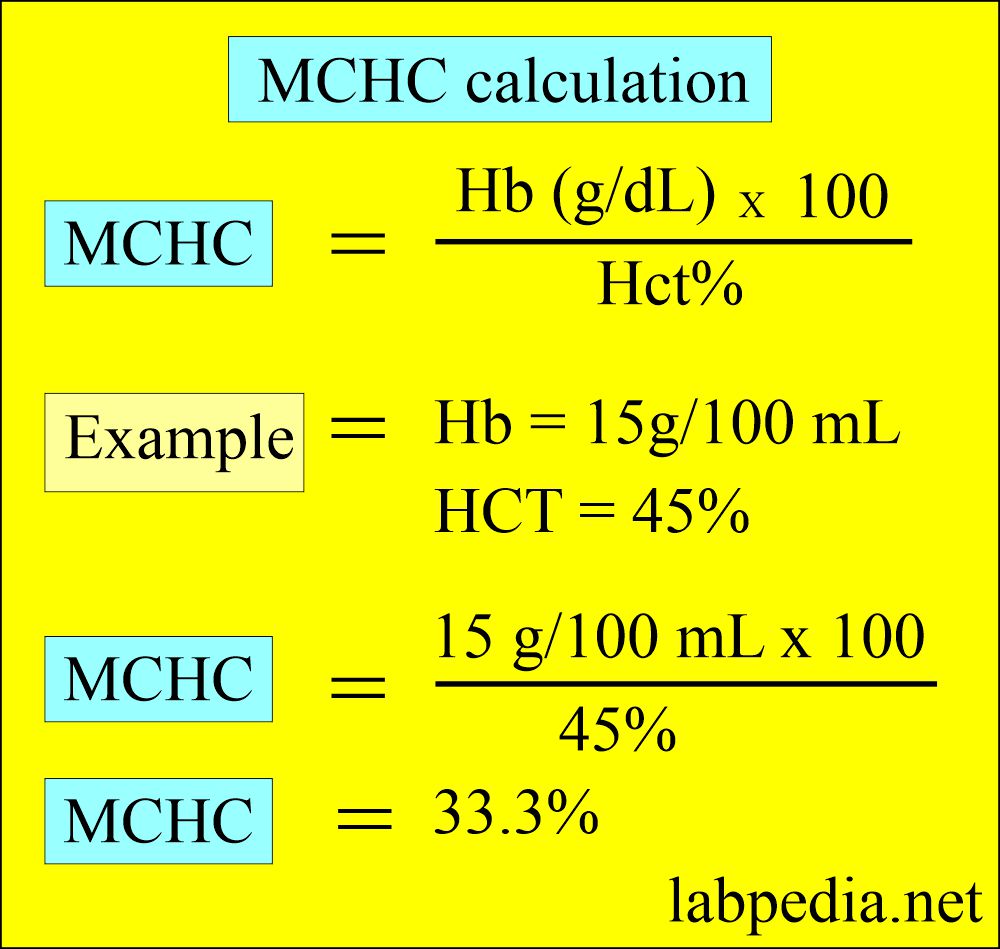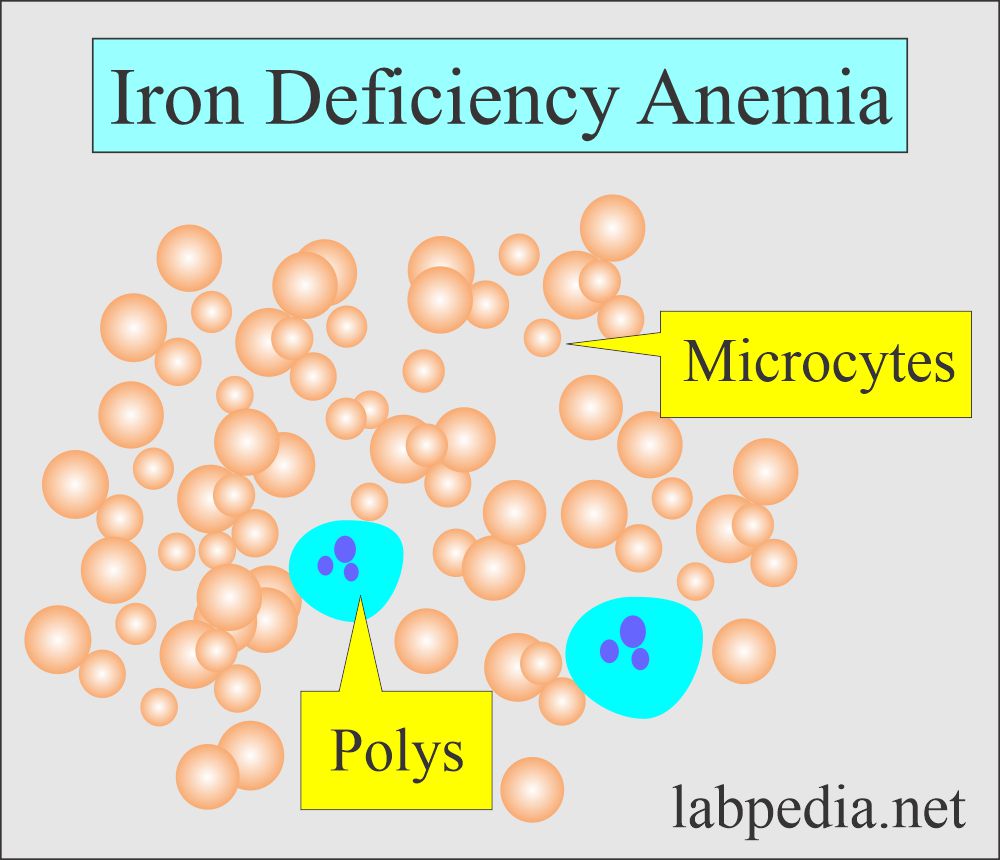Mean Corpuscular Hemoglobin concentration (MCHC)
Mean Corpuscular Hemoglobin concentration (MCHC)
What sample is needed for Mean Corpuscular Hemoglobin concentration (MCHC)?
- It is done on blood in EDTA (anticoagulant).
- Whole blood is stable 6 hours at 25 °C and 24 hours at 4 °C.
- Fetal blood is collected by percutaneous umbilical blood.
What are the indications for Mean Corpuscular Hemoglobin concentration (MCHC)?
- This is part of CBC (Complete blood count).
- This helps to diagnose the type of anemia.
- Mostly advised diagnosing macrocytic anemia.
How will you define Mean Corpuscular Hemoglobin concentration (MCHC)?
Definition of MCHC:
- This measures the average hemoglobin concentration or percentage within a single RBC.
- The MCHC depends on the relationship of the amount of hemoglobin to the volume of the RBC.
- Based on MCHC, RBCs may be classified into:
- Normochromic.
- Hypochromic.
- Both MCH and MCHC values determine the Hemoglobin content in the RBCs.
- If MCHC is normal, it is caused by low MCHC and high MCV.
- Then, RBCs are referred to as normochromic.
- If MCHC is less than normal, then RBCs are hypochromic.
- Hypochromic RBC when Decreased MCHC indicates low hemoglobin.
- The above normal level may be seen in alteration of RBC shape like spherocytosis, transfusion reaction, and erythroblastosis fetalis.
What factors interfere in estimating Mean Corpuscular Hemoglobin concentration (MCHC)?
- False increased MCHC is seen in the following conditions:
- The abnormal size of the RBCs may affect the MCHC.
- Increased level of lipids in the blood gives a high result because of high hemoglobin.
- Intravascular hemolysis gives free hemoglobin, which is calculated by the autoanalyzer.
- Sickle cell anemia.
- Hereditary spherocytosis.
- Few cases of autoimmune hemolytic anemia.
- Sever lipemia of the serum.
- Rouleaux formation or agglutination.
- In the case of increased concentration of heparin.
- Decreased MCHC is seen in marked leucocytosis (>50,000/cmm).
What is the normal MCHC?
Source 1
| Age | g Hb/dL | |
| Fetal blood | ||
| 18 to 20 weeks | 32.0 ± 2.3 | |
| 21 to 22 weeks | 31.7 ± 2.78 | |
| 23 to 25 weeks | 32.1 ± 3.20 | |
| 26 to 30 weeks | 32.1 ± 3.60 | |
| Cord blood | 30 to 36 | |
| 0.5 month | 28 to 35 | |
| 0ne month | 28 to 36 | |
| 2 month | 28 to 35 | |
| 4 month | 29 to 37 | |
| 6 to 12 month | 32 to 37 | |
| 1 to 2 year | 32 to 38 | |
| 3 to 11 year | 32 to 37 | |
| Male | Female | |
| 12 to 14 year | 32 to 37 | 32 to 37 |
| 15 to 17 year | 32 to 36 | 32 to 36 |
| 18 to 44 year | 32 to 37 | 32 to 36 |
| 45 to 64 year | 32 to 36 | 31 to 36 |
| 65 to 74 year | 31 to 36 | 32 to 36 |
- To convert into SI unit x 10 = g Hb/L
Source 2
- Adult = 32 to 36 g/dL or 32% to 36%
- Newborn = 32 to 33 g/dL or 32% to 33%.
Where would you see normal MCHC values?
- Normochromic anemia (hemolytic anemias).
Where would you see decreased values of MCHC?
- When MCHC is <30 g/dL.
- Hypochromic microcytic anemias:
- Iron deficiency anemia.
- Microcytic anemia.
- Chronic blood loss.
- Thalassemia.
Where would you see increased values of MCHC?
- Hereditary spherocytosis is suspected when MCHC is >36 g/dL.
- Newborns and infants.
- Erythroblastosis fetalis.
- Not an increase in pernicious anemia.
What is the differential diagnosis of MCHC?
| MCHC decreased | MCHC increased |
|
|
Questions and answers:
Question 1: What will be MCHC in sickle cell anemia?
Question 2: What is the value of decreased MCHC?


